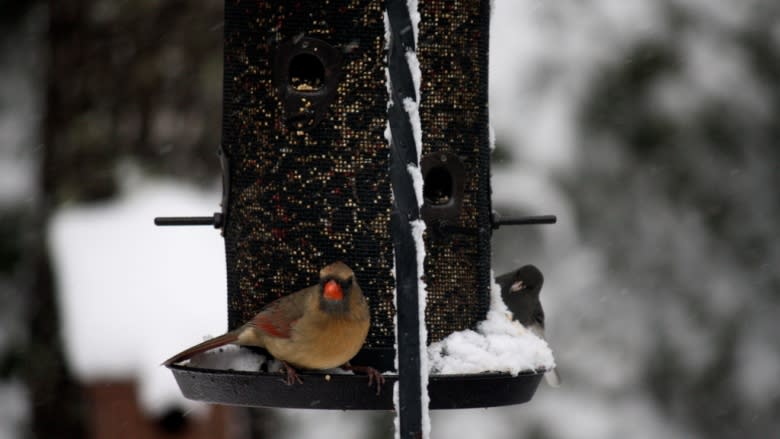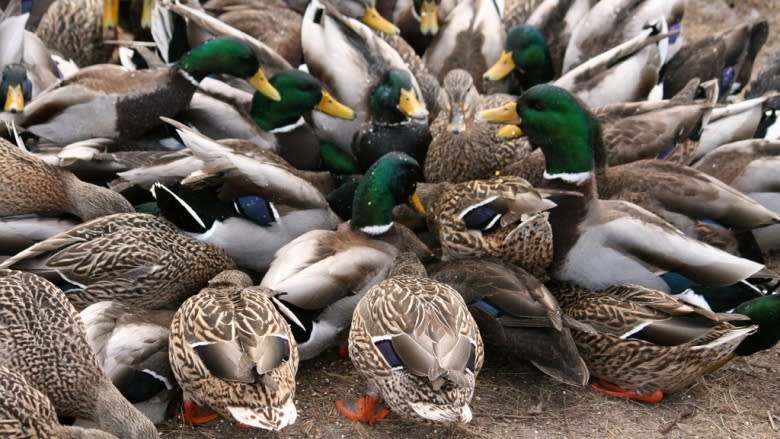4 ways to help your feathery friends get through the rest of winter
While Vancouver endures its longest cold snap in 30 years, it's not just people that are feeling the frost.
Birds have had a rough go of it this winter, and many people have stepped up to help them beat the cold
But when we assist or interfere with wildlfe, does it make them weak and dependent? According to Clive Keen, editor of B.C. Birding magazine, we need to take ourselves off the pedestal.
"Birds are professionals," said Keen. "They know what they're doing. Birds are birds for a living. We need to be cautious, but not get too worried about them becoming dependent on us."
Keen, alongside fellow bird-lover Cathy Steele, joined host Gloria Macarenko on CBC's B.C. Almanac. If we want to keep seeing birds in our backyards, they say we need to start lending a helping hand.
1. Keep bird feeders clean
Whether it's the winter or the summer, it's extremely important to keep bird feeders clean.
Old and mouldy food can make birds sick. And if your feed is resting on trays, it can become a toilet, and spread diseases including salmonella.
"It's probably best not to have a tray, and make sure the seed isn't falling to the ground," said Steele, owner of Wild Birds Unlimited Store in South Surrey.
2. Keep the hummingbird feeders from freezing
Everyone loves watching a hummingbird hover in their backyard. But the winter weather can keep them from coming back.
"Hummingbirds come back to the feeder every year, and if they come back, and it's frozen... it makes it a little more difficult for them," said Steele.
Plumbing tape is a great way to keep the hummingbird feeders functioning.
There are also some other, more creative ways to keep the feeders warm.
3. Build a brush pile
Do you have some spare branches and twigs laying around your yard? If so, pile them up to erect a small brush pile — it's a lot easier than building a bird house.
"If you have a brush pile, it keeps the bird out of the elements, and it gives them protection from the hawks that come in," said Clive Keen.
4. Take a trip to the pond
With many small watering holes frozen across the city, many ducks don't have access to some of their favourite underwater treats.
Corn, oats, frozen peas and birdseeds will go down swimmingly at the pond. And according to Keen, even a little bit of bread is permissible.
"There's a lot of strange rumours about feeding birds. I suspect that if a bird had nothing but bread, it would probably be nutritionally in trouble — but [it's fine] as a minor supplement."
Not to mention, it tastes quack-tastic.
With files from CBC's B.C. Almanac
To listen to the full interview, click on the audio labelled: 4 ways to help your feathery friends get through the rest of winter



